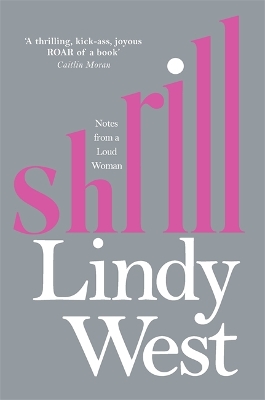
clementine
I was a big fan of Lindy West in the Jezebel heyday, so I knew I would enjoy this book a lot. It's a series of personal essays about feminism, or feminist essays about Lindy West. However you want to look at it - the lines get blurred a bit! I think she is a really great writer - funny, conversational, but incredibly smart. She brings humour and compassion to sensitive subjects and I just love that despite all the abuse she gets for being an outspoken feminist on the internet she never backs down. I really enjoyed her writing about being the victim of online abuse and trolling campaigns - it's vulnerable writing, but vitally important, I think. The way women are terrorized online is a really important aspect of the way patriarchy is operating to silence us in this day and age, and it's great to see it being addressed. (See also Mary Beard's Women and Power, which I read earlier in the year.)
I wasn't a huge fan of her reliance on rehashing certain fights - for example, there was a whole chapter about her war with Dan Savage about fat acceptance which basically just amounted to reposting pieces she'd written for The Stranger with additional commentary. It felt slightly lazy, and like the activist equivalent of thinking of a really snappy comeback weeks after a confrontation. I felt the same way about the chapter on the debate she had with a comedian about rape jokes - it's not that I disagreed with her argument at all, it's that the bulk of the chapter is just a transcript of the debate with her added commentary. It feels lazy!
The genre of "feminist essays with a personal twist" seems to be gaining a lot of traction lately, and it's one that I've dabbled in quite a bit as a reader. I will say that this genre feels overwhelmingly straight and white and middle-class (just like mainstream feminism in general), which can often result in some uncomfortable moments. (The latent racism in Rebecca Solnit's Men Explain Things To Me stands out as an example.) West did consider other marginalized female identities thoughtfully and acknowledge her own privilege, which is more than a lot of mainstream white feminist writers do. Ultimately, though, she's confined by her own position - which is not a fault of hers at all, but which I think makes it all the more necessary for women of colour and LGBTQ women to be represented in this genre. Going forward that's something I'll keep in mind when buying books, and I really hope that things continue to swing towards representation. It's nice that there's such a huge amount of feminist literature available now (seriously, I was just in a Waterstones today and they've dedicated a lot of floor space to it), but I want it to be more inclusive.
